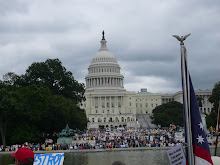The "Transformation Blueprint" listed under heading STAFF on the PRSD home page describes the desire of school officials for whole school reform and change: http://www.pinerichland.org/blueprintfinal011209.pdf. This is from 2008 and I doubt the majority of parents realize that a transformation is already in the works, as described in this document. Change to what, that is not exactly clear. Here are some excerpts (some emphasis added in bold, comments in italics):
Pg 4 The goal is to transform the Pine-Richland School District to give its graduates a sustained competitive advantage in our global society.
John P. Kotter, noted author and Harvard professor, suggests in his book Leading Change that establishing a sense of urgency is critical in gaining needed cooperation
Pg 18 The content of our core subjects in the 21st century includes global awareness; financial, economic, business and entrepreneurial literacy; civic literacy; and health and wellness awareness. (Sounds like a United Nations document promoting global oneness - or Center for American Progress, no mention of academics esp. MATH-Science-TECHNICAL PROFICIENCY! Math is only mentioned 4 times in this Blueprint. STEM is NOT mentioned at all in this document or the 2006 Strategic Plan, but seems to be a new progressive way of transforming math and science into a creative, small group, right-brained lab class - isn't the $43 million HS expansion called the "STEM Addition" yet we have never as parents reviewed the STEM curriculum!)
In addition to 21st century content and core subjects are thinking and learning skills that our students must master so that they can keep learning and make good use of what they know throughout their lives. These thinking and learning skills include: critical thinking and problem solving skills, communication skills, creativity and innovation skills, collaboration skills, information and media literacy skills, and contextual learning skills.
Finally, information and communications technology literacy allows students to use 21st century technology in support of 21st century learning. Ultimately all our students must master essential life skills in order to lead successful lives both in and out of school. The emphasis is on social stewardship where students understand that mean-ing and happiness can be derived by putting "others" over "self" and to provide services to others in need. Opportunities will continue to exist where students are able to give back via services to their school, community and world. These skills include ethics, accountability, adaptability, personal productivity, personal responsibility, people skills, self-direction, positive attitude and social responsibility. These are often referred to as "soft skills" which are essential for future success. ---Think socialism, SOCIAL JUSTICE, sustainability, no individual freedoms as designed by the Founders
By reading that you see every new term - all the new jargon - is being employed by our district. This change in direction to focus on globalism and so-called 21st Century Skills (focus on how to know instead of knowing, content is diminished, see http://politics.usnews.com/opinion/articles/2008/12/15/21st-century-skills-are-not-a-new-education-trend-but-could-be-a-fad.html) seems to have been advanced initially by former Superintendent by Dr. Manley (http://www.pinerichland.org/SP/furtherreading.html).
It is important to know that Critical Thinking (as well as the other terms) does not really mean what you think. Here is the definition from the recently exposed and nixed "Living in the Environment" textbook (http://www.yournorthhills.com/northhillsnews/article/proposed-environmental-science-book-raises-questions) an abomination that got approval at every level up to the Board (i.e. I presume HS principal, superintendent):
Pg 1: "Understandably, we are biased, but we strongly believe that environmental science is the single most important course in your education." (emphasis in original)
Pg 2: Regarding "Critical Thinking" skills:
"Question everything and everybody"
"Identify and evaluate your personal biases and beliefs: Each of us has biases and beliefs taught to us by our parents, teachers, friends, role models, and experience. What are your basic beliefs, values, and biases? Where did they come from? What assumptions are they based upon? How sure are you that your beliefs, values and assumptions are right and why? According to the American psychologist and philosopher William James, 'A great many people think they are thinking when they are merely rearranging their prejudices." --They forgot to mention all the biases our kids got from church and Sunday school and the Bible, the priest, pastor, rabbi, iman and youth group leader.
If you have read the guidelines for "Dialog vs. Debate" provided in 8th grade pre-AP English class for the Socratic Circles (I only stumbled upon it in the June post-school clean up; http://www.nald.ca/clr/study/scdvd.htm), you'll see that the group discussions are designed to produce consensus through compromise. But we work hard to instill our values into our own children, and we do not want the school to teach our kids to compromise their values in the spirit of consensus. Consensus that is forced by the staging of the classroom and the pressure of being evaluated by your peers and teachers is coercion. We used to admire those who stood up for their convictions; now we vilify them for being "intolerant."
